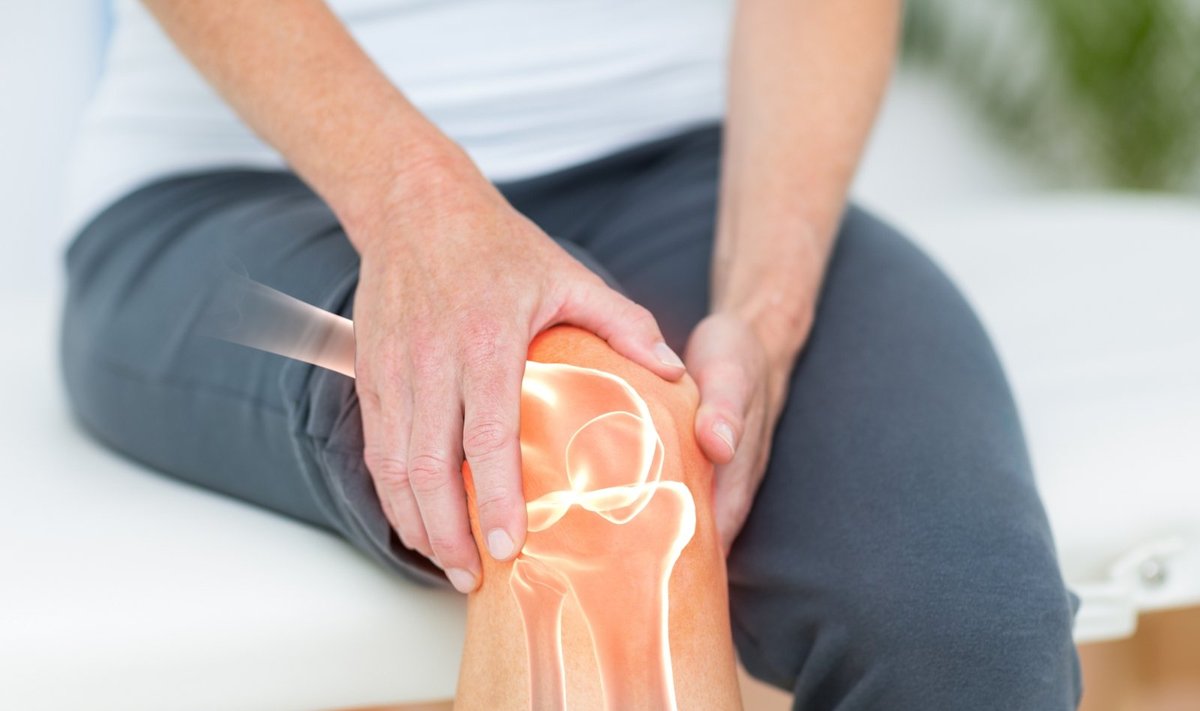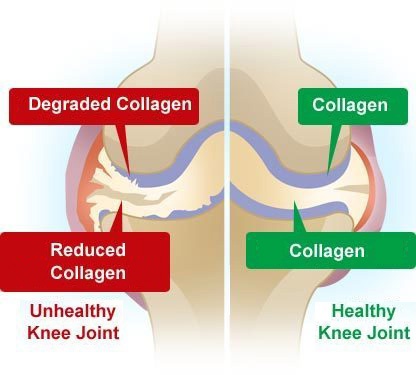
Collagen is the main structural protein found in human and other animal bodies, making up about 30% of all proteins in the body, thus being one of the most important components in maintaining the structure and function of the body. This protein is particularly abundant in the skin, bones, tendons, ligaments, and connective tissue, playing a crucial role in providing strength, elasticity, and integrity to these structures.
Collagen consists of long chains of amino acids, which form strong and flexible structures of three spirally intertwined chains. These unique structures give collagen fibers extraordinary resistance to stretching, which is vital for the support and regeneration of tissues. The collagen fibers are extremely resistant to tension, which is important in maintaining the structural integrity of the body, for example, in the skin, where they contribute to elasticity and strength, or in tendons and ligaments, which act as the main connective elements between bones and muscles.
The production of collagen in the body decreases with age, which can contribute to signs of aging, such as the formation of wrinkles in the skin and problems with joints and bones. For this reason, collagen supplements and collagen-boosting substances have become popular health and beauty products.
The importance of collagen for movement
Collagen, an essential structural protein in the human body, is very important for movement as it is the main component of bones, joints, tendons, ligaments, and muscles. This protein plays a vital role in maintaining the structural integrity, elasticity, and resistance of these tissues, which are necessary to ensure smooth and effective movement.
Collagen is particularly resistant to stretching, providing the necessary strength and flexibility to tendons and ligaments that connect muscles to bones and bones to each other. Without collagen, these tissues would become weak and brittle, which could lead to strains, dislocations, and other injuries. Collagen is also an important component of bone structure, ensuring their strength and resistance to fractures.
The role of collagen in joint health is particularly important. It is the main component of hyaluronic acid, which is an important substance in joint fluid. This fluid reduces friction between joint surfaces, ensuring smooth movement and reducing joint wear and tear. A lack of collagen or disruptions in its production can cause joint pain and degenerative joint diseases, such as osteoarthritis.
Collagen sources
Collagen sources and supplements are important for both prevention and treatment, especially for older individuals or those with inadequate diets.
Natural Sources of Collagen
Collagen can be found in various food products. These include:
- Meat products: Particularly rich in collagen are fish, beef, chicken, and other animal-derived products. These foods are rich in amino acids, which are essential for collagen synthesis.
- Bone broth: Traditionally considered one of the best natural sources of collagen. Bone broth, made from long-cooked bones, is rich in collagen and other connective tissue components.
- Plant sources: Although collagen is not directly present in plant-based diets, certain plant products can help the body produce collagen. For example, citrus fruits, red peppers, tomatoes, and leafy vegetables are rich in vitamin C, which is necessary for collagen synthesis.

Collagen Supplements
Collagen supplements are widely available and can be useful in supplementing the body's collagen levels, especially when natural production decreases due to aging or inadequate nutrition.
- Forms: Collagen supplements are most commonly sold in powder, capsule, or liquid form. Powders are popular for their ease of mixing with liquids, while capsules and tablets are convenient for dosing.
- Types: There are several types of collagen, differing in their structure and function. For example, type I collagen is the most common in the body and is important for the skin, bones, and tendons, while type II collagen is associated with joints.
- Bioavailability: The effectiveness of collagen supplements depends on their bioavailability - how easily the body can absorb them. Hydrolyzed collagen, which is broken down into smaller peptide chains, is more easily assimilated.
- Scientific research: The effectiveness of collagen supplements for movement and joint health is confirmed by various scientific studies. They show that regular collagen consumption can help improve joint flexibility, reduce pain, and promote the renewal of joint tissues.
Can collagen supplements reduce joint pain?
The question of whether collagen supplements can reduce joint pain is important and widely studied in medicine, especially in the context of degenerative joint diseases, such as osteoarthritis. Collagen is the main protein found in joints, tendons, ligaments, and connective tissue, and its role in joint health is undeniable.
Scientific studies and the role of collagen
Collagen provides structural support to joints and is an important component of hyaluronic acid present in joint fluid. This fluid reduces friction between joint surfaces, ensuring smooth movement. A deficiency or deterioration of collagen due to aging or injuries can cause joint pain and degenerative diseases.
Numerous clinical studies have revealed that collagen supplements can have a positive effect on joint health. Participants in these studies, diagnosed with osteoarthritis or other joint pains, experienced a decrease in pain and an improvement in movement function when taking collagen supplements.
It is believed that collagen supplements aid in regenerating joint cartilage, the wear and tear of which causes pain and stiffness. Collagen can also help strengthen tendons and ligaments that support joints, thus reducing pain and inflammation.
The effectiveness of collagen supplements depends on their bioavailability. Hydrolyzed collagen, which is broken down into smaller peptide chains, is more easily absorbed and can therefore be more effective.
Recommendations
It must be acknowledged that the effectiveness of collagen supplements can vary among individuals. Each person's response to supplements can be different, depending on various factors, including overall health and lifestyle.
It's important to choose high-quality collagen supplements and pay attention to their composition. It's also recommended to consult with a healthcare professional before starting to take collagen supplements, especially if you have medical conditions or are taking other medications.
Collagen supplements can be used as part of a comprehensive joint pain management plan, including dietary changes, physical activity, and other medical procedures.

While collagen supplements can be beneficial in reducing joint pain and improving movement function, it is important to understand that they are just one of many possible treatment strategies. Their effectiveness can vary depending on individual health characteristics, and their use should be coordinated with other healthcare recommendations and treatment plans.
Information sources:
- National Institutes of Health (NIH)
- Harvard Medical School






